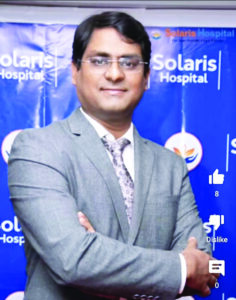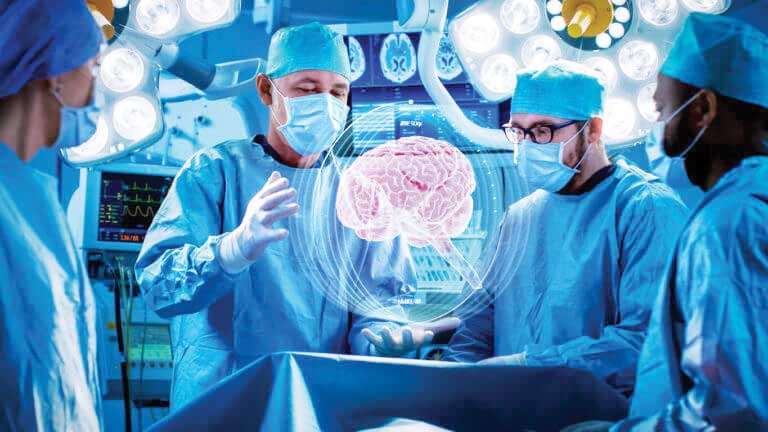Neurosurgery Decoded
May is Brain Tumor Awareness Month, a time dedicated to increasing understanding and awareness about neurological conditions. This article addresses common questions about neurosurgery and the critical role it plays in treating various neurological disorders.
What are the common symptoms of a neurological disorder?
Symptoms vary but may include headaches, seizures, numbness/weakness, changes in coordination, memory problems or difficulty in speaking.
How do you ensure patient safety during neurosurgical procedures?
Safety measures include preoperative evaluation, adherence to surgical protocols, use of advanced imaging techniques, Intraoperative monitoring, use of Neuronavigation computer assistance and a multidisciplinary team approach.
How long is the recovery process after neurosurgery?
Recovery varies depending on surgery type and individual factors, typically involving a hospital stay followed by rehabilitation and gradual activity increase.
What kind of follow-up care is needed after a neurosurgical procedure?
Follow-up care involves monitoring recovery, managing medications, addressing complications, physiotherapy and rehabilitation as needed.
Can you explain the role of neurosurgery in treating spinal conditions?
Neurosurgery for spinal conditions aims to alleviate pain, improve function and stabilise the spine through procedures such as decompression, fusion or disc replacement, spinal cord tumor excision, etc.
Can neurological conditions be treated without surgery?
Yes, many cases can be managed with medication, physical therapy, lifestyle changes, or sometimes, procedures like Radiofrequency ablation, nerve blocks or radiosurgery.
Are there any alternative treatments or therapies for neurological conditions?
Yes, alternative therapies such as acupuncture, chiropractic care, herbal supplements, and mindfulness-based interventions may complement traditional medical treatments for some neurological conditions. Always consult with a healthcare professional before trying alternative therapies.

-Dr Amit Aiwale
Senior Consultant Neurosurgeon
Solaris Hospital Thane
Fellow WFNS, Neuroendoscopy
Contact: +91 8655696500
Email: dramit@solarishospitals.com
Website: www.dramitaiwaleneurosurgeon.com

